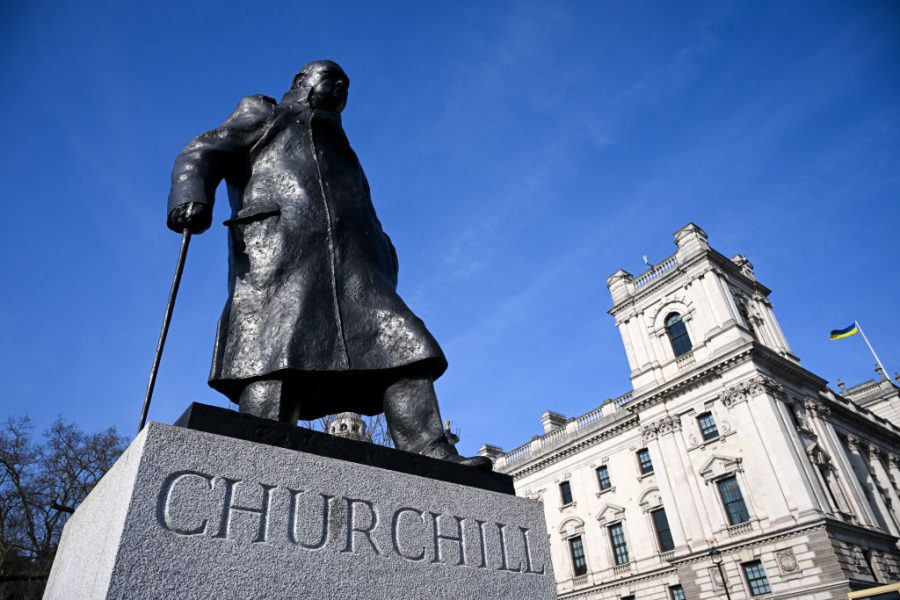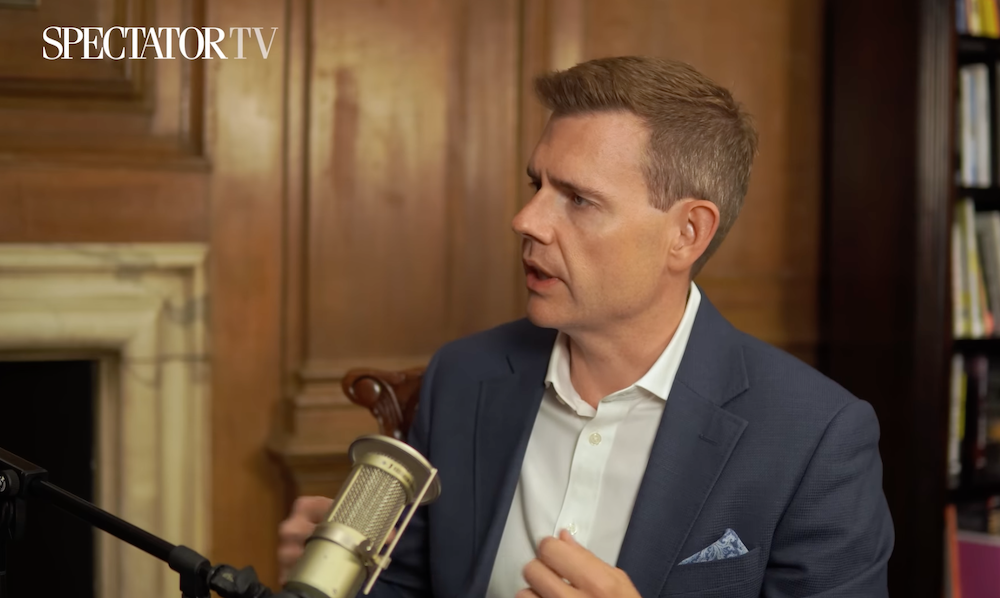Is the European Court of Human Rights a foreign court? For the former diplomat Lord Hannay of Chiswick, this ‘lamentable, dog-whistle nomenclature is not even accurate, since the court has had many admirable British judges down the years’.
Strictly, the Strasbourg Court may be an international court rather than a foreign court – and it is true and important that the UK always has a judge on the court, many of whom have been impressive jurists. Still, parliamentarians and the public are not wrong to see the Strasbourg Court as a foreign body – an irritant to the body politic – riding roughshod over our tradition of parliamentary democracy and the rule of law.
While Churchill gave rhetorical support for post-war European cooperation, he did so in vague terms
The standard riposte from enthusiasts for the European Convention on Human Rights (ECHR) – and for its local outpost, the Human Rights Act 1998 (HRA) – is that the convention is British, as well as European, and that it arises smoothly out of the English Common Law tradition. Parliamentarians and others who rail against it thus misunderstand the ECHR’s historical and intellectual foundations and incoherently reject an instrument that was largely made in Britain. Worse, insofar as conservatives argue for withdrawal from the ECHR, they repudiate one of the Conservative party’s finest accomplishments and the legacy of its greatest leader, Sir Winston Churchill.
The Prime Minister, Sir Keir Starmer, banged this drum in 2024, in the course of opening the plenary session of the European Political Community at Blenheim Palace. Having noted that Blenheim was where Churchill was born, he went on to assert that ‘we will never leave the European Convention on Human Rights. Churchill himself was among the chief architects of the convention’. Many, many other defenders of the ECHR have made a similar argument, stressing Churchill’s spiritual authority, so to speak, for the establishment of the Council of Europe and the ECHR. They have decried as ‘unconservative’ the prospect of now, years later, leaving the convention.
It is very odd to see Winston Churchill and the post-war Conservative party deployed in this way in modern parliamentary deliberation and public commentary. On no other topic, save perhaps appeasement (and maybe not even then), would the memory of Churchill and his political colleagues carry such purported authority, especially on the part of campaigners and activists who one might otherwise expect to recoil from his name.
Much of this talk must be strategic, with the Churchill card played only to embarrass Conservative critics of the Strasbourg Court. That said, some parliamentarians and others do seem truly to believe that the ECHR was made by Churchill and co. such that to withdraw from it now, however reluctantly, would mark a breach with his legacy.
Revisiting the historical materials makes clear just how misleading this narrative is. A new Policy Exchange paper, published today, spells this out with care. While British lawyers were closely involved in the drafting of the ECHR, their aim was to secure a limited instrument that would guarantee basic rights, which already existed in British law, against the return to totalitarianism.
The British government of the time, which reluctantly signed the convention, had serious concerns about the risks the ECHR posed to national sovereignty, the common law tradition of law and government, and its own radical programme of economic reform. For, despite what many have asserted or assumed, this was a Labour government, rather than a Conservative one.
While Churchill gave rhetorical support for post-war European cooperation, he did so in vague terms, never clarifying whether he thought Britain should in the end join what was to become the ECHR. As Lord Roberts of Belgravia, a leading biographer of Churchill, makes clear in a foreword to Policy Exchange’s paper, Churchill only mentioned the European Court of Human Rights twice.
One mention was in the context of denouncing Soviet religious persecution in Hungary. The second, much more glancing, mention was in the context of noting the emergence of various European institutions, including a European army, a proposal of which he had a very low opinion.
Most importantly of all, when Churchill returned to power in 1951, he showed no interest or enthusiasm for the ECHR and indeed his government, in common with the Attlee government, did not accept the jurisdiction of the Strasbourg Court. Only in 1966 did a new Labour government accept individual petition to the court – and thus subject Britain to its jurisdiction.
There is no reason whatsoever to think that Churchill himself was an enthusiast either for the European Court of Human Rights or, especially, for Britain’s subjection to its jurisdiction. His record in office strongly suggests otherwise.
In any case, the attempts made in recent years to leverage Churchill’s towering reputation in order to shore up public or parliamentary support for the ECHR founder on an obvious fact. The ECHR 1950 bears very little relation to the ECHR 2025, a point on which few of those celebrating its 75th anniversary care to linger.
The point is not just that the ECHR 1950 did not commit the UK to accepting the jurisdiction of the Strasbourg Court, important though that is. The critical point is that in the years since, and especially from the mid-1970s onwards, the Court has shamelessly remade the convention in the course of adjudication, inventing new rights and imposing new obligations on the member states.
The ECHR 2025 has in large part been invented by the Strasbourg Court in defiance of the terms that the member states agreed. In pointing this out, and in asking whether Britain should continue to tolerate that Court’s usurpation of the prerogatives of a democratic state, one is not repudiating the legacy of Churchill – or the legacy of Attlee for that matter.
Neither statesman chose to commit the UK to the ECHR as it has become and it seems very likely that neither would have viewed the Strasbourg Court’s subsequent transmutation of the convention with equanimity. The historical foundations of the ECHR may not require the UK now to leave it – that is a question which falls to those living today – but they emphatically do not support the case for remaining.







Comments